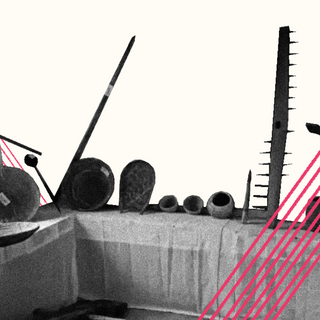
In‑Laws Asking Wife to Do Housework Is Not Akin to Treating Her ‘Like a Maid’: Bombay HC
The court’s comments highlight how marriages — with the sanction of courts and law — uphold and entrench gendered divisions of labor.

The Aurangabad Bench of the Bombay High Court recently observed that a married woman asked to do housework by her in-laws was not comparable to being treated “like a maid,” reported LiveLaw on Wednesday evening.
The court made the statement while quashing an FIR made by the woman against her husband and in-laws accusing them of cruelty, voluntary hurt, insult, and criminal intimidation. The woman alleged in her FIR that barely a month after her marriage, her husband’s family began treating her “like a maid servant.” The court, responding to the matter, stated, “If a married lady is asked to do household work definitely for the purpose of the family, it cannot be said that it is like a maid servant. If she had no wish to do her household activities, then she ought to have told it either prior to the marriage so that the” bride-groom can rethink about the marriage itself…”
In ultimately quashing the FIR, the court reinforced the notion that household labor remains in the woman’s domain — and also that the labor of wives is qualitatively different from those of “servants.” The incident and the court’s comments highlight how unpaid labor in Indian households is divided on the basis of gender, and how marriages — with the sanction of courts and law — uphold and further entrench these divisions.
Only last month, for example, a sessions court in Mumbai held while hearing a case of abetment of suicide that a married woman’s in-laws pushing her to do household tasks could not be counted as cruelty, and thus ruled it as a cause of suicide. The court noted that performing household chores were a responsibility for married women and that the daily wear and tear relating to housework caused to the woman by her in-laws thus was a “natural phenomenon” that could not be construed as mental cruelty. Similarly, in October 2020, the Kerala High Court stated that a husband making his wife perform unpaid domestic labor did not amount to cruelty. This shows how the legal system is either unwilliing to recognize household labor as unpaid domestic labor, or understands performing them as a duty of the married woman towards her family.
In the present judgement, the court’s insistence that a married woman being asked to do housework is “different from a maid” is exemplary of not just the Indian judiciary’s faith in this gendered division of labor but also in a caste-based hierarchy of professions. In fact, in the Indian context, the two are quite connected — by the institution of caste.
The intertwining of caste, gender, and labor in the law goes way back. Dr. Bhimrao Ramji Ambedkar, the late sociologist Sharmila Rege writes, traces the origins of these oppressive, gender-divergent laws, to the laws of Manu — the laws which are encoded in the ancient text Manusmriti. In August this year, a sitting judge of the Delhi High Court remarked in a public gathering that the Manusmriti gave women equality.
Related on The Swaddle:
Can We Ever Rewrite the Sexism, Casteism Woven In the Language of Indian Courts?
The Swaddle reported on how the ancient casteist and sexist text envisions the role of women in the family and society. The text states in its fifth chapter that “Even in her own home, a female – whether she is a child, a young woman or an old lady – should never carry out any task independently. As a child, she must remain under her father’s control, as a young woman, under her husband’s; and when her husband is dead, under her sons.” In chapter 8, Manu further clarifies, “Wife, son, and slave – all these three, tradition tells us, are without property. Whatever they may earn becomes the property of the man to whom they belong.”
The ideas of Manu on the position of women in society have followed us well into the 21st century. Thus, a 2019 survey on nationwide time use by the National Sample Survey Office observed that only 26% of men across India reported engaging in any kind of housework in their life. Moreover, even in the states that reported the highest average time of men engaging in housework, it didn’t amount to more than 47 minutes in a day. In stark contrast, Indian women spent 84% of their time in a day engaging in unpaid domestic labor. Labor is still divided along gendered lines in India. And Indian courts have often extended this division rather than challenge it.
Hence, marriage, in the Indian context, is largely guided by oppressive principles. And even in the 21st century, it continues to be a deeply unfeminist and unequal institution. As Rajvi Desai wrote for The Swaddle in 2019, in Indian marriages, “women are transferred from their parents’ homes to their husbands’; they go from sporting their father’s middle name to their husbands’; they shoulder the burden of unpaid housework disproportionately while being required to abandon their educational qualifications and ambitions for a professional, paid career.” Desai adds that marriage’s “perceptions of women as property also condone sexual and reproductive violence against women.” Thus, even when in many circumstances the institution of marriage centers around love, “the gender roles entrenched in marriage have not progressed, neither has the legal system that has failed to catch up with the times and accord women the dignity and respect they deserve as human beings.”
Judgments like the current Bombay High Court ruling about housework and it being a married woman’s duty have not stopped. And these judgments are unlikely to change unless the composition of judges in the country becomes more representative, including women and members from the marginalized communities. As Saumya Kalia writes for The Swaddle, “Across India’s 25 high courts, only 12% of judges were women as of 1st August, 2020. Since its inception, the Supreme Court has had only eight judges who are women. There has never been a woman judge who comes from a Dalit or Adivasi community.” Although representation automatically may not result in progressivism, it could be a first step in reorienting the judiciary’s sensibility toward matters of concerns for women and other oppressed groups.
Amlan Sarkar is a staff writer at TheSwaddle. He writes about the intersection between pop culture and politics. You can reach him on Instagram @amlansarkr.
Related


The Assam Government Sealed a Museum Dedicated to Bengal‑Origin Muslims
